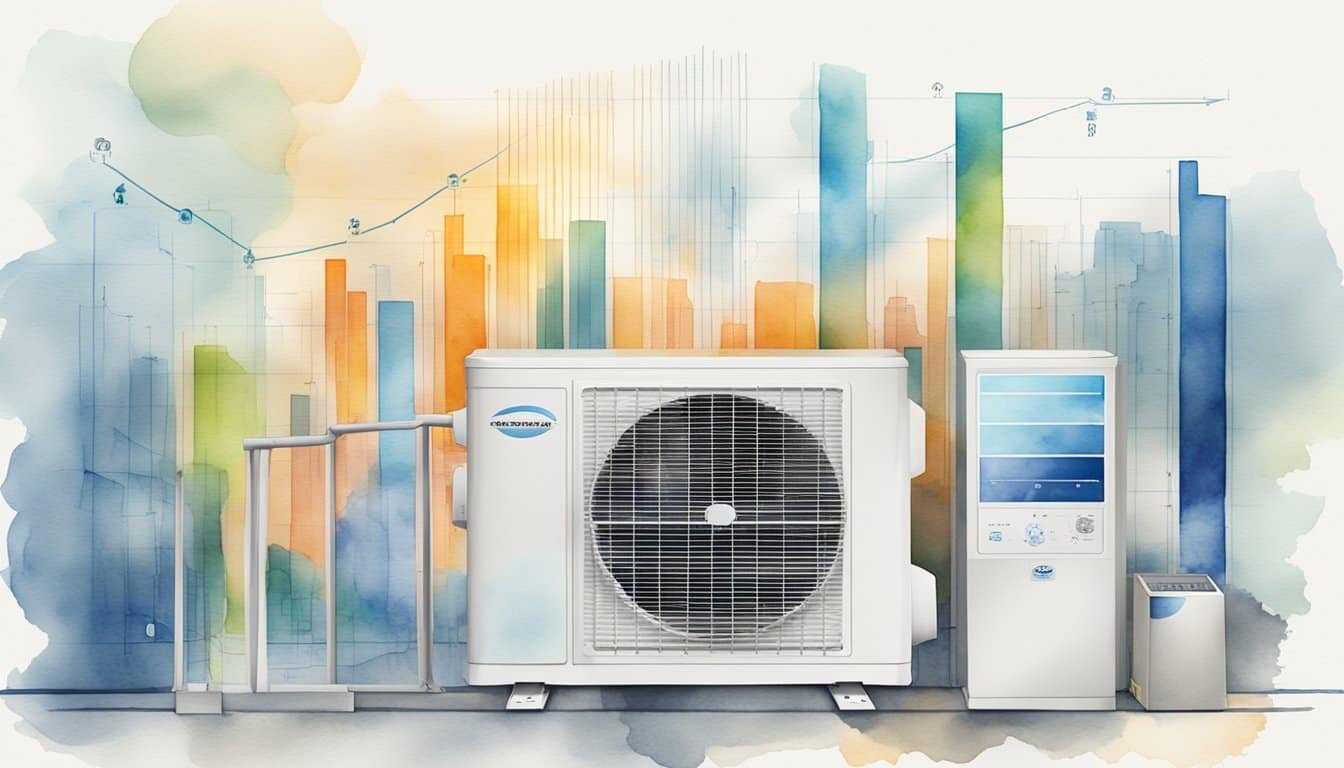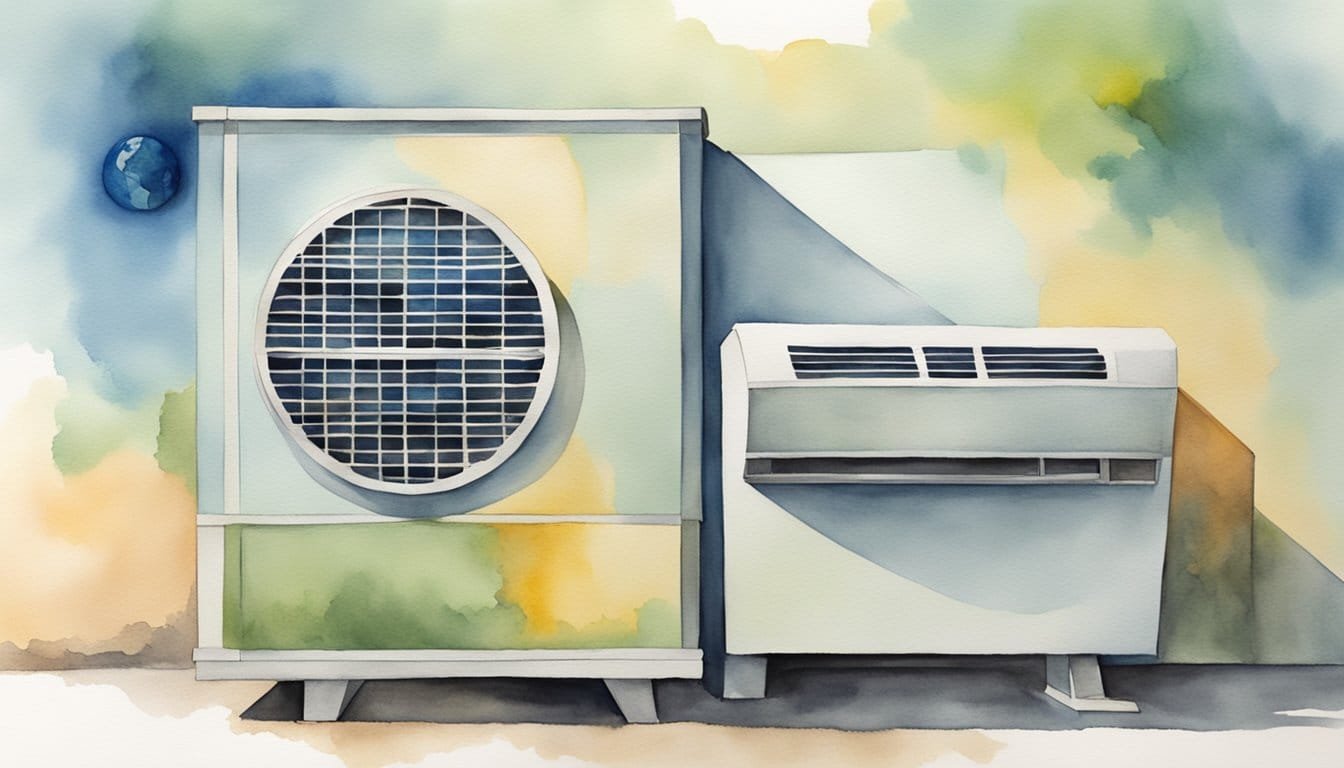Innovations in Air Conditioning Technology
The landscape of air conditioning is undergoing a significant transformation with the introduction of energy-efficient and environmentally responsive systems. As global temperatures rise, the quest for sustainable cooling solutions has led to groundbreaking advancements in AC technology.
Emerging Cooling Technologies
Emerging cooling technologies are setting the stage for a revolution in how we stay cool. Notably, metal organic frameworks (MOFs) have emerged as a promising material capable of enhancing the efficiency of traditional vapor compression systems. Companies like Transaera are leveraging these porous materials to create air conditioners that consume less energy and remove moisture from the air more effectively. Similarly, Blue Frontier has developed air conditioning units incorporating new technologies to significantly reduce energy costs without compromising on cooling power.
Desiccants in Climate Control
Desiccants are playing a pivotal role in the evolution of climate control. These moisture-absorbing materials are being increasingly used in conjunction with cooling systems to improve air quality and energy conservation. The integration of desiccants can enhance the performance of HVAC systems, as they allow for the removal of humidity from the air more efficiently. Promethean Power Systems is one company at the forefront of this innovation, integrating desiccant-based systems to create more sustainable and cost-effective air conditioning options.
Energy Efficiency and Environmental Impact

With the advent of new technologies, the design of energy-efficient air conditioners is revolutionizing the way we cool our homes, leading to a substantial decrease in electricity use and a positive impact on the environment by reducing greenhouse gas emissions.
Energy-Efficient Air Conditioners
Recent advancements in cooling technology mean that modern air conditioners can significantly reduce energy demand while maintaining comfort. The introduction of variable-speed compressors and improved heat exchanger designs in energy-efficient air conditioners are instrumental in cutting down energy consumption. For instance, inverter technology allows air conditioners to operate at optimum speeds, rather than cycling on and off, thereby using less electricity and maintaining more stable temperatures.
Reducing Greenhouse Gas Emissions
Air conditioning units not only need to be efficient in terms of energy usage but also environmentally friendly. The shift towards using safer refrigerants with lower global warming potential (GWP) is crucial in mitigating environmental impact. Conventional refrigerants, with high GWP, contribute to carbon dioxide emissions and exacerbate global warming. Innovations like the utilization of R-32 refrigerant, which has a GWP approximately 70% lower than R-410A (commonly used in older systems), underscore the industry’s commitment to reducing greenhouse gas emissions.
Technological Advances and Market Trends

The landscape of air conditioning technology is shifting rapidly, with innovation driven by the need for energy efficiency and influenced by environmental policies.
Innovative Compressors and Heat Exchangers
Today’s air conditioning systems feature compressors that are the product of sophisticated engineering designed to reduce energy consumption while enhancing cooling capabilities. Companies like Transaera are tapping into cutting-edge designs to create compressors that are smaller, lighter, and more efficient. These advancements have a significant impact in terms of energy usage and cost savings for consumers.
Heat exchangers have similarly seen notable improvements. Innovations in heat pump technology allow for better transfer of heat, which improves overall climate control and contributes to reduced electricity usage. The efficient operation of these new models is a testament to how sophisticated heat exchanger design has become.
Impact of Policy and Market Forces
Government policies have a strong hand in shaping the air conditioning market. Initiatives by the Department of Energy and funding from organizations like Third Derivative and Breakthrough Energy Ventures are accelerating the development of next-generation air conditioning technologies. The Inflation Reduction Act is another catalyst, pushing the industry towards more eco-friendly practices by offering incentives for energy-efficient solutions.
Market forces respond to these policy shifts. As performance standards tighten, manufacturers are racing to comply with new regulations and meet consumer demands. The emphasis on sustainability is becoming a significant differentiator in the competitive landscape of air conditioning technology.
Air Conditioning and Global Health

As temperatures rise worldwide, air conditioning is more than just a luxury—it’s a shield against health risks and a tool to improve quality of life, particularly in developing countries.
Improving Quality of Life
The advent of new air conditioning technologies highly influences the quality of life. In many regions, the demand for cooling systems increases as they become essential in protecting the health of people against heat-related stresses. Innovative solutions, like those recognized by the Global Cooling Prize, are revolutionizing the market by offering energy-efficient cooling options that decrease electricity consumption without compromising comfort.
Air Conditioning in Developing Countries
In developing countries, access to affordable and efficient air conditioning is critical. The spread of COVID-19 highlighted the need for adequate ventilation, which is often provided by air conditioning systems in hot climates. However, the challenge remains to balance the demand for cooling with the sustainable use of electricity in these regions, ensuring that the health of people is safeguarded and the quality of life is enhanced without exacerbating global warming.

